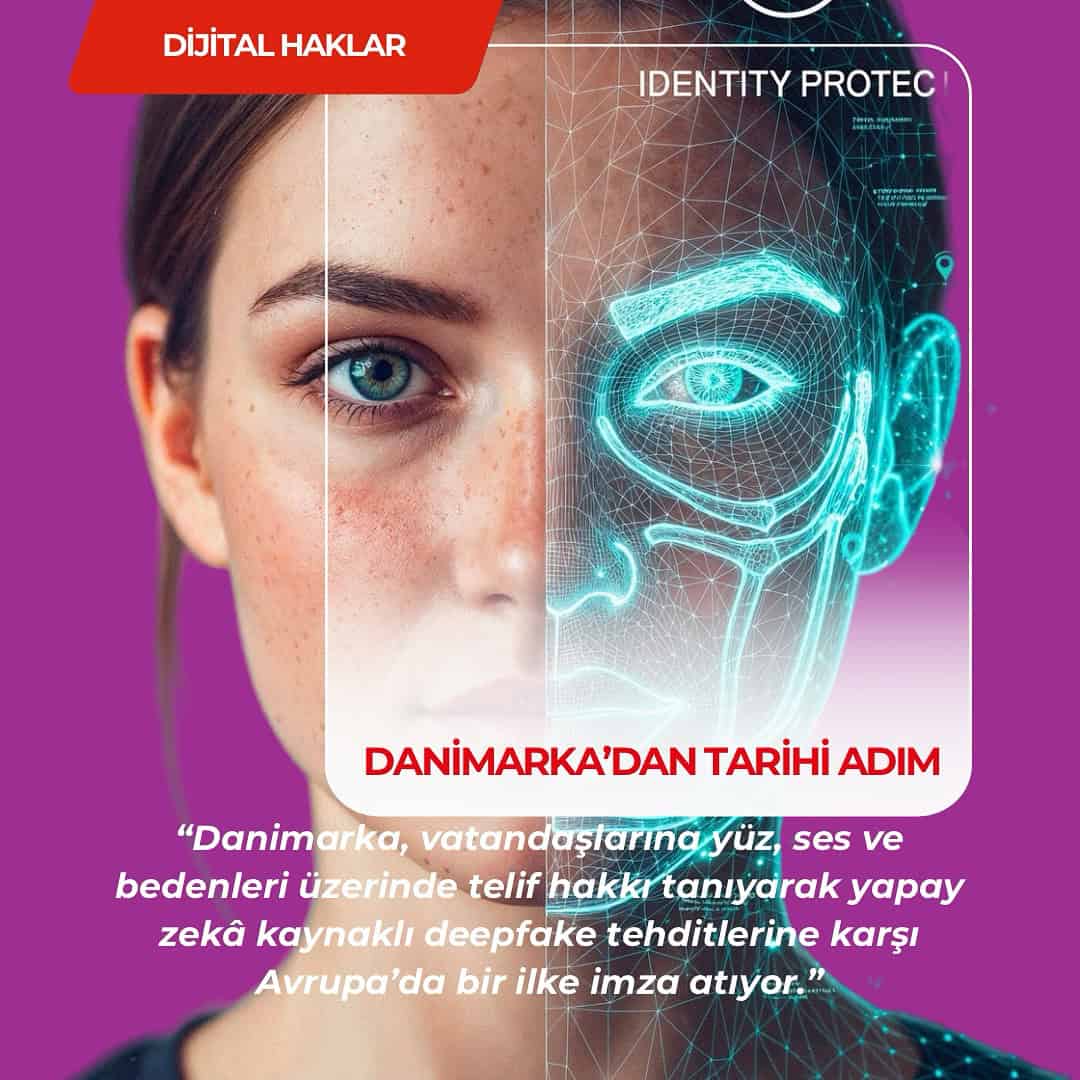With the development of the digital age, Web 4.0 has brought revolutionary changes in information and communication technologies. The legal aspects of this new transformation cannot be ignored. Important issues such as data privacy, intellectual property rights, liability and criminal law, smart contracts and internet freedom, the importance of which has become clear after the violations that have occurred in recent years, include important discussion points that require a legal framework. We list a few below.
- Data Privacy and Security: The basis of Web 4.0 lies in the collection, processing and analysis of big data and personal data. The law has a major role in ensuring the protection of users' personal data through data protection laws and regulations.
At this point, it is necessary to mention some important regulations regarding data security adopted by the European Union (EU) and the United Nations (UN).
General Data Protection Regulation: GDPR, which came into force in 2018, regulates the processing and protection of personal data in EU member states. GDPR aims to protect individuals' data privacy and rights and encourages institutions to take appropriate data protection measures.
E-Privacy Directives In addition to the EU's current data protection regulation, GDPR, e-privacy regulations also aim to protect private communication data. This regulation covers areas such as e-mails, messaging services, online tracking and cookie use. While setting out privacy rules for internet service providers, telephone operators and other providers of electronic communications services, the 2009 directives include rules on the use of cookies that require users' consent. Cookies are small data files used by websites to improve user experience, target ads or track users.
Data Protection Violations Notification Obligation: Under the GDPR, each EU country has determined its own data protection authority. These authorities are responsible for reporting and investigating data protection violations. Institutions must report personal data breaches to the competent data protection authority within 72 hours. Thus, data breaches can be detected quickly and necessary measures can be taken. For example, in Germany the Federal Data Protection Commissioner regulates data protection violations and oversees the notification obligation. Similarly, in the UK, organizations such as the Data Protection Commissioner manage notifications and investigations of data protection breaches.
Under the umbrella of the United Nations, Information Technologies and Communication Law studies are based on various international agreements in order to regulate the use of information technologies and develop globally compatible policies. The UN also carries out studies to determine international standards on the protection of personal data and to encourage countries to cooperate in this field. In this context, various international agreements and decisions determine the principles for the security and protection of personal data. The UN has carried out studies to ensure cooperation between countries on cyber security, to encourage measures against cyber attacks and to create an internationally compatible cyber security framework, and has created various cyber security decisions and international agreements.
- Intellectual Property Rights: With the development of Web 4.0, digital content production and sharing is increasing. In this case, protection of intellectual property rights has become important. While ensuring the protection of digital content and innovations through copyrights, patents, trademarks and other intellectual property laws, encouraging creativity and supporting innovation should not be forgotten.
There is currently no international regulation for NFTs. NFTs are tokens that represent the uniqueness and ownership of digital assets through blockchain technology. However, as the popularity of NFTs increases, governments and international regulatory bodies have begun to determine their policies on whether to legislate in this area.
Licensing and recording of platforms and transactions for NFT trading, taxation of income from NFTs, and prevention of money laundering are the main discussion topics in this field. However, the widespread use and consolidation of this innovative technology is only possible if its use is legalized and auditable through international agreements. However, at present, NFTs are generally benchmarked within existing financial and legal frameworks and are not regulated.
Although NFTs, due to their differences from other crypto assets, cause governments to keep their distance from this innovative value, there is no provision in the Crypto Asset Markets Regulation published by the European Commission that explicitly accepts NFTs as crypto assets. It is surprising that there is no clear title for the trending and extremely popular NFTs. Based on this text, we can say that it is possible to evaluate NFTs among other crypto assets, but the need for international cooperation and establishment of standards around the world still exists. As developments in this field continue, it will be inevitable for countries to have to put their policies on a legal basis. The United States (US) Securities and Exchange Commission defines a digital asset as “an asset issued and transferred using distributed ledger or blockchain technology.” However, it does not have a definition for NFTs. NFTs are not currently specifically regulated in the US. China, on the other hand, bans cryptocurrencies and is against the financial use of NFTs. In Turkey, in the Regulation Amending the Regulation on Measures for the Prevention of Laundering Proceeds of Crime and Financing of Terrorism, which came into force on May 1, 2021, the concept of 'crypto asset service providers' was used for the first time in Turkish legislation; The definition of this concept is not included. The situation for NFTs remains unclear in our country. In this regard, the comprehensive NFTs prepared by BCTR do not have a common definition with the legal regulations of the countries; It is worth noting that there is no consensus on whether it is an investment instrument, virtual collectible, security value, payment instrument or crypto asset. However, despite the prohibitive regulations of some countries, we would like to state that, with the work of some progressive governments, positive predictions are also discussed that NFTs can take their place in the future with their aspects compared to publicly traded values and mass investment instruments.
- Liability and Criminal Law: Web 4.0; With the increasing use of artificial intelligence and automatic systems, it may bring about new discussions about liability. The law's emphasis on responsibilities and legal regulations regarding the use of autonomous vehicles, artificial intelligence systems and other automatic systems is gaining importance as technology develops. Additionally, regulations that combat new threats created by Web 4.0, such as cybercrime and cyberattacks, are essential.
- Smart Contracts and the need for dispute resolution, reveals that we can no longer ignore regulations compatible with new technologies. As the use of smart contracts increases in the Web 4.0 era; Its legal validity, applicability and potential problems will only be answered by the law regulating smart contracts. Smart contracts can speed up dispute resolution processes and reduce costs thanks to their automatic execution capabilities. Blockchain technology-based smart contracts provide a reliable solution by supporting dispute resolution in a neutral and transparent environment. With the use of smart contracts, automatic and code-based dispute resolution mechanisms can emerge while dependence on the traditional judicial system decreases. Although there is no legal basis in the world yet, there are platforms established in this direction.
While Web 4.0 offers a connected and interactive web experience, it can also bring about issues such as censorship and content control. It is indisputable that the law will play a leading role in protecting internet freedom, preventing censorship and determining the limits of freedom of expression in order for the internet to continue as a democratic and free environment. As the Web 4.0 era transforms the digital world, law must play a role in guiding and regulating this transformation. The impact and expectation of legal regulations in areas such as data privacy, intellectual property rights, liability and criminal law, smart contracts and internet freedom are inevitable. In the age of Web 4.0, the law must undertake the task of protecting users, encouraging innovation and ensuring justice. Therefore, understanding the technical dimensions of Web 4.0 and developing legal regulations are important for the successful management of the digital age.



